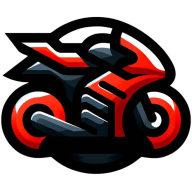Welcome to our comprehensive guide on motorcycle maintenance. This post aims to equip you with essential tips to keep your two-wheeler in top-notch condition. From routine checks to complex adjustments, we'll cover it all. Whether you're a seasoned rider or a beginner, these tips will help you ensure your motorcycle's longevity, performance, and safety. So, let's dive into the world of motorcycle maintenance without further ado.
Understanding Your Motorcycle's Anatomy
A motorcycle is a complex machine, comprising numerous parts working in harmony. Understanding these parts and their functions is the first step towards effective maintenance.
The engine, the heart of your motorcycle, demands utmost attention. Regular oil changes ensure its smooth operation. The type of oil you use matters too. Always refer to your motorcycle's manual for the recommended oil type and change frequency.
The transmission system, which includes the clutch and gearbox, is another critical component. Regular inspection for wear and tear, coupled with timely replacements, can prevent major breakdowns.
Your motorcycle's tires play a crucial role in ensuring a smooth and safe ride. Regularly check tire pressure and look for signs of wear or damage.
The braking system, comprising the brake pads, discs, and fluid, is vital for your safety. Regular checks and timely replacements can make a significant difference in your riding experience.
Regular Checks and Adjustments
Regular checks and adjustments form the backbone of motorcycle maintenance.
Start with a pre-ride check. Before you hit the road, ensure your lights, horn, and indicators are functioning correctly. Check the tire pressure and adjust if necessary.
Your motorcycle's chain requires regular cleaning and lubrication. A well-maintained chain ensures smooth transmission and extends the chain's life.
Regularly check your motorcycle's fluid levels. This includes engine oil, brake fluid, and coolant. Low fluid levels can lead to poor performance and potential damage.
Adjusting your motorcycle's clutch and throttle cables is another essential maintenance task. Over time, these cables can stretch and require adjustment for optimal performance.
Cleaning and Protecting Your Motorcycle
Cleaning your motorcycle is not just about aesthetics; it's a crucial part of maintenance.
A clean motorcycle allows you to spot potential issues like oil leaks or loose bolts. Use a motorcycle-specific cleaner for best results. Avoid using harsh detergents as they can damage the paint and metal parts.
After cleaning, it's essential to protect your motorcycle. Use a good quality wax or polish to protect the paintwork. For metal parts, consider using a corrosion inhibitor.
Don't forget to clean and lubricate your motorcycle's chain. A dirty chain can wear out faster and affect your motorcycle's performance.
Seasonal Maintenance Tips
Different seasons demand different maintenance strategies.
In winter, the cold can take a toll on your motorcycle's battery. Consider removing the battery and storing it in a warmer place. If you're riding in winter, ensure your tires have adequate tread for slippery conditions.
Summer heat can cause your motorcycle's engine to overheat. Regularly check the coolant level and consider using a summer-grade oil.
In the rainy season, ensure your motorcycle's lights and indicators are working correctly for visibility. Also, check your tires for adequate tread to prevent hydroplaning.
Professional Servicing and Repairs
While regular maintenance can keep your motorcycle in good shape, professional servicing is essential.
A professional mechanic has the knowledge and tools to perform complex tasks like valve adjustments or carburetor tuning. Regular professional servicing can help identify potential issues before they become major problems.
Repairs should also be left to professionals. While it might be tempting to fix issues yourself, a wrong repair can lead to more damage. Always consult a professional mechanic for repairs.
The Importance of Using Quality Parts and Fluids
The quality of parts and fluids you use in your motorcycle can significantly impact its performance and longevity.
Always use parts and fluids recommended by your motorcycle's manufacturer. While cheaper alternatives might be tempting, they can lead to poor performance and potential damage.
Quality engine oil can enhance your motorcycle's performance and extend the engine's life. Similarly, using quality brake fluid can improve your motorcycle's braking performance.
Wrapping Up Motorcycle Maintenance Tips
Motorcycle maintenance might seem daunting, but with the right knowledge and regular attention, it's manageable. Remember, the key to a well-maintained motorcycle lies in understanding its anatomy, performing regular checks and adjustments, cleaning and protecting it, adapting to seasonal changes, seeking professional help when needed, and using quality parts and fluids. By following these tips, you can ensure your motorcycle's optimal performance, longevity, and safety. Ride safe!

